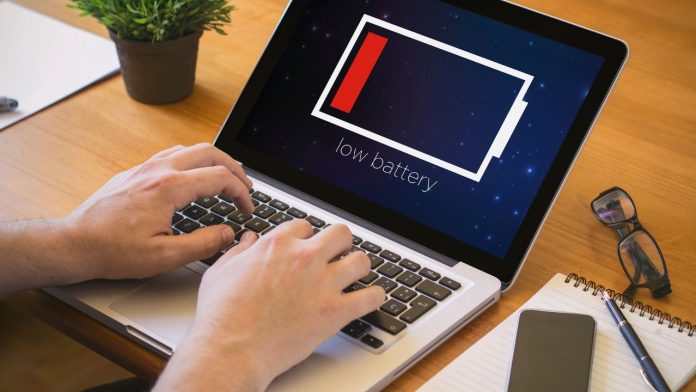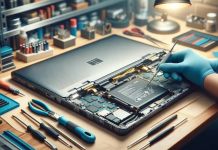We’ve all been there—your HP laptop battery isn’t holding a charge, and you need a quick fix. Maybe you found a replacement online, but its voltage doesn’t match the original. It fits, so you install it, thinking it will work fine.
The application of improper voltage batteries results in performance degradation as well as severe safety risks. The following discussion explains why voltage plays a crucial role and what occurs when neglected.
If you need a quality battery, there is no better option than an HP-BATTERY that will solve these voltage issues.
Voltage and Why Does It Matter?
Electrical devices use voltage as the driving force to conduct current. Energy distribution works similarly to water pressure, which creates weak flow from inadequate pressure, but high pressure leads to pipe failure. HP laptops require batteries whose voltage exactly suits their operational demands.
The improper use of an 11.1V battery within a product that requires 14.8V creates an unbalanced system, rendering the components useless in the long run.
Dangers of Using a Battery With the Wrong Voltage in HP Laptops
Risk 1: Laptop Damage
HP laptops are built for specific voltage levels. A higher-voltage battery forces excess power into the system, overloading circuits and overheating parts. The motherboard faces potential destruction, and internal components become vulnerable.
The power delivered by a low-voltage battery often results in shutdowns, slow performance, and charging system failures. Long-term use can lead to hardware malfunctions even if the laptop turns on.
Risk 2: Overheating and Fire Hazards
High voltages produce heat that causes internal components to warp and melt connector interfaces. Lithium-ion batteries that power HP laptops maintain exceptional sensitivity to voltage variations.
Overheating can cause swelling, leaks, or even battery explosions. HP strongly warns against using non-approved batteries to prevent these hazards.
Risk 3: Reduced Battery Life
One of the effects of using a mismatched battery is accelerated wear of your laptop components. The laptop operates at a higher performance level when a high-voltage battery is installed simultaneously with a quicker power drain from a lower-voltage battery.
The stress created by mismatched voltages will reduce the battery life span and operational quality. You may need another replacement sooner than expected.
Risk 4: Voiding Your HP Warranty
HP warranties require the use of approved batteries. If a mismatched battery damages your laptop, HP won’t cover repairs. Many laptops log power data, so replacing the battery before a service check won’t hide the issue.
The affordable off-model battery may appear tempting until it results in over-priced repairs. Always follow HP’s official battery recommendations.
Risk 5: Charging Issues and Thermal Runaway
The charging of HP laptops depends on accurate voltage control to maintain safety. When batteries mismatch with the system, it becomes confused, leading to improper charging conditions.
When batteries experience overcharging, they develop heat and gas that cause swelling or a blast. Poor recharge leads to battery degradation because it reduces their storage ability.
When Is a Voltage Mismatch “Safe”?
In rare cases, small voltage differences might not cause immediate damage. However, HP laptops don’t have strong voltage regulators to handle mismatches safely.
Avoid mismatched batteries unless HP explicitly states a voltage range is acceptable. Before choosing a different battery, users must consult their manual or HP’s website.
How to Avoid Battery Voltage Issues in HP Laptops?
- Read Labels Carefully: Match the original voltage (V) and battery type.
- Buy from Trusted Sources: Use HP-certified batteries to ensure compatibility.
- Recycle Old Batteries: Mixing old and new batteries can create uneven voltage.
- Check Manufacturer Guidelines: HP provides official battery guides for each model.
- Use a Multimeter: A simple tester can confirm if a battery’s voltage is correct.
What If You’ve Already Used the Wrong Battery?
If you’ve installed a mismatched battery, act quickly. Follow these instructions when your laptop becomes overheated and shuts off without warning while refusing to charge:
- Turn Off the Laptop – Prevent further damage by shutting it down.
- Remove the Battery – Take it out carefully to stop overheating.
- Place the battery Somewhere Safe – place it on a concrete or a non-flammable surface. This will provide fire safety.
- Examine for Damage—Your battery must remain unused when it has a burnt odor, swelling, or leakages.
- Seek Professional Help – Contact HP support or a technician for safe disposal and replacement.
The Bottom Line
The correct voltage measurements depend on your HP laptop’s operational safety and performance. The benefits of using the wrong battery quickly fade because its negative effects prove more significant than any advantage.
High voltage poses dual dangers, resulting in electrical circuit burns and potential fire hazards. You should always use batteries approved by HP while following voltage specifications and seek professional advice if you have any doubts. Your laptop and your safety depend on it.









